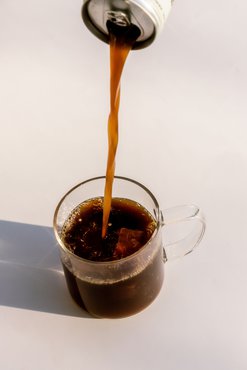Stay-at-home mandates impeded the $1.1 billion specialty, shelf-stable, ready-to-drink coffee and tea category in 2020 as usage occasions shrunk without consumers commuting to offices or schools daily.
According to the Specialty Food Association’s State of the Specialty Food Industry research, 2020-2021 edition, the category’s growth was a healthy 8.4 percent between 2015 and 2019. But Mintel, who worked with SFA on the 2020-2021 edition, forecasts RTD coffee and tea will slow markedly from 2020 through 2024, down to 0.8 percent growth for a total of $1.2 billion in brick-and-mortar retail sales by 2024.
Specialty’s share of the total category is above average at 33 percent, but conventional brands with premium positioning are pressuring the specialty segment. And, during COVID-19’s first surge last spring, specialty grew far slower than the total shelf-stable RTD tea and coffee category, 1.9 percent compared to 4.8 percent from January-April 2020 vs. prior year.
RTD coffee makes up the majority of the category and it surpassed RTD tea growth, though sales were somewhat offset by non-RTD coffee as consumers turned to home brewing during lockdowns.
Refrigerated RTD coffees and teas, though a smaller category with $316 million in sales in 2019, experienced more robust sales growth of 37.7 percent between 2017 and 2019. Its growth, however, is expected to slow post-COVID, according to Mintel forecasts.
A return to more normal routines of commuting, working in office buildings, and attending school on campus could help alleviate slowdowns in refrigerated or shelf-stable segments, according to the report. RTD coffees and teas are also driven by several trends that are helping attract consumers. These include:
Cold brew. Cold-brew coffees, in which grounds don’t interact with water at high temperatures, are touted as less bitter and more flavorful with less acidity. Among recent RTD varieties to come to market are Cowffee, a cold brew mix of coffee and milk made by Pursue Happiness, and Café Grumpy’s Cold Brew TetraPak. Sofee also introduced The Escapist, a Mexican chocolate flavor, to its line of lightly carbonated cold-brew RTD coffee.
Plant-based. Additions of plant-based milk in RTD coffee drinks have opened sales opportunities for consumers seeking dairy alternatives. New products include Macadamia and oat milk lattes from Taika, made with craft coffee and including functional mushrooms and adaptogens like ashwagandha, lion’s mane, reishi, and cordyceps. Nitro Latte with Oatmilk from Califia Farms combines the company’s oat milk with Arabica coffee direct-trade sourced from Central and South American growers.
Sparkling and hard teas. Carbonated RTD teas is a segment growing in popularity. Silverback Sparkling Tea in Keto Green Hibiscus, for example, is a carbonated organic fair trade green sencha-style tea from Rwanda, produced by 3 Mountains. Subsegments like sparkling teas made with hops, similar to craft beer but nonalcoholic, are also gaining a following.
No sugar. The SFA Trendspotter panel identified low and no-sugar as a 2021 Top 10 trend with consumers opting to lower their sugar intake and turn to alternatives. The trend is turning up in the RTD beverages category, in teas particularly. Sun Moon Lake Black Tea No. 18 Ruby is a combination of Burmese big-leaf black tea and Taiwan wild camellia. It contains no sugar but has a natural cinnamon and mint fragrance. Shaka Tea is a no-sugar tea brewed with māmaki, an herbal tea only found and grown in the Hawaiian Islands.
Related: RTD Coffee With CBD Experiences High; Chobani Introduces RTD Coffee Line.

